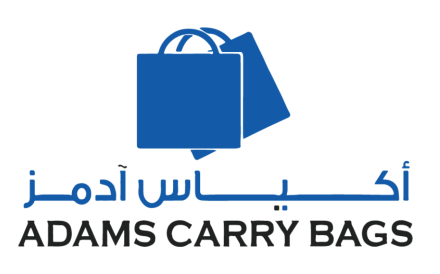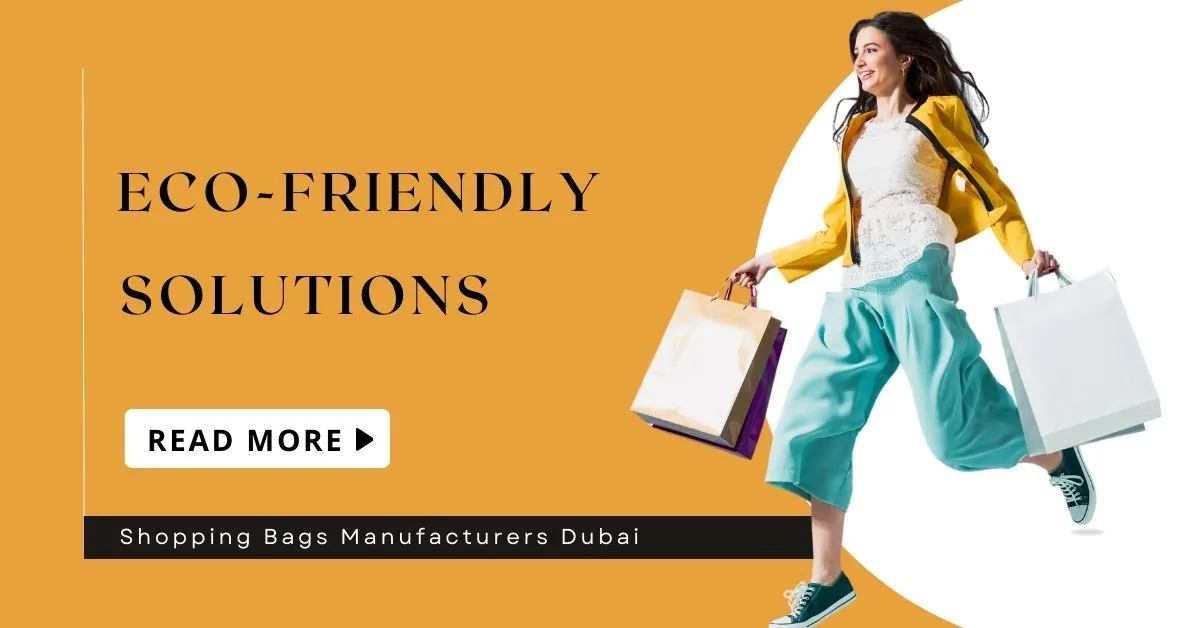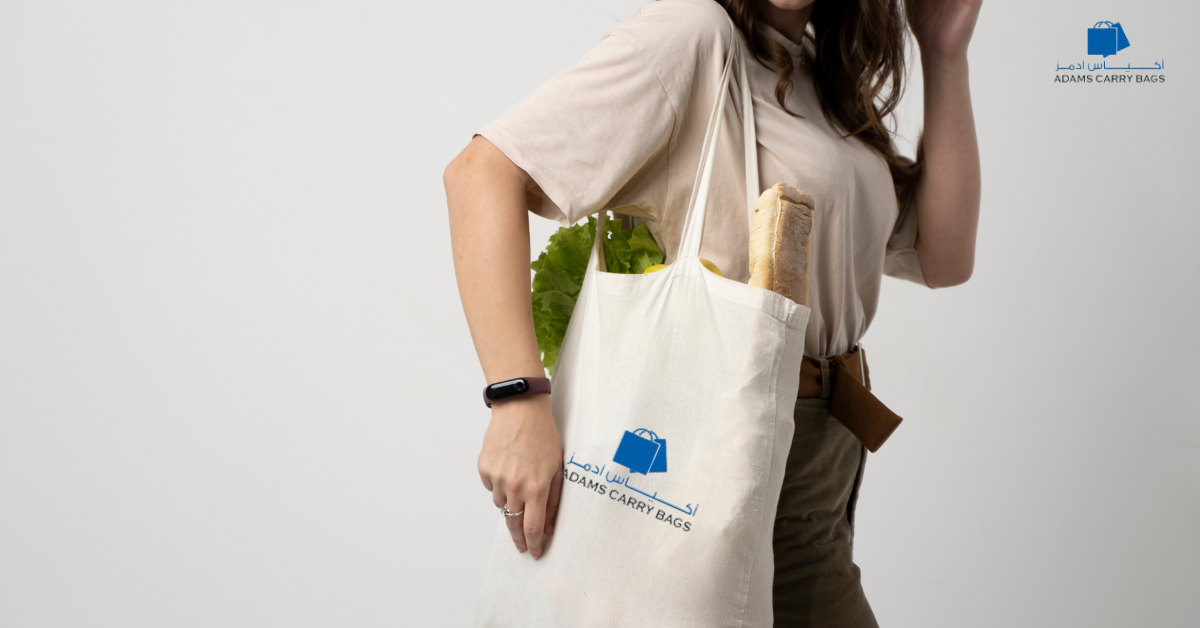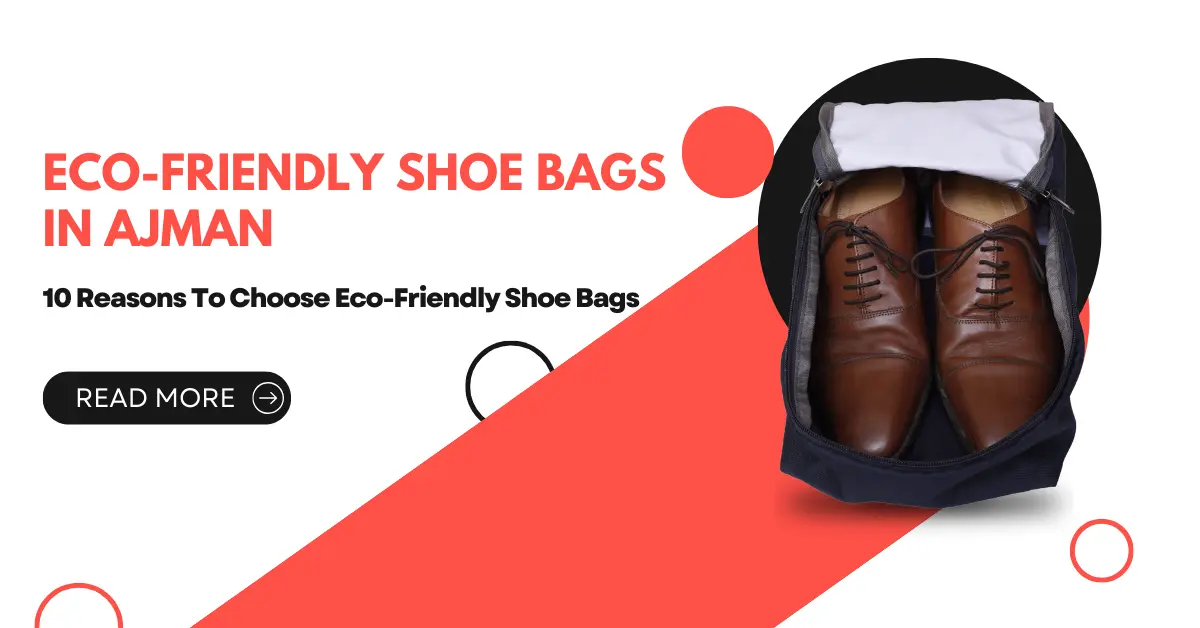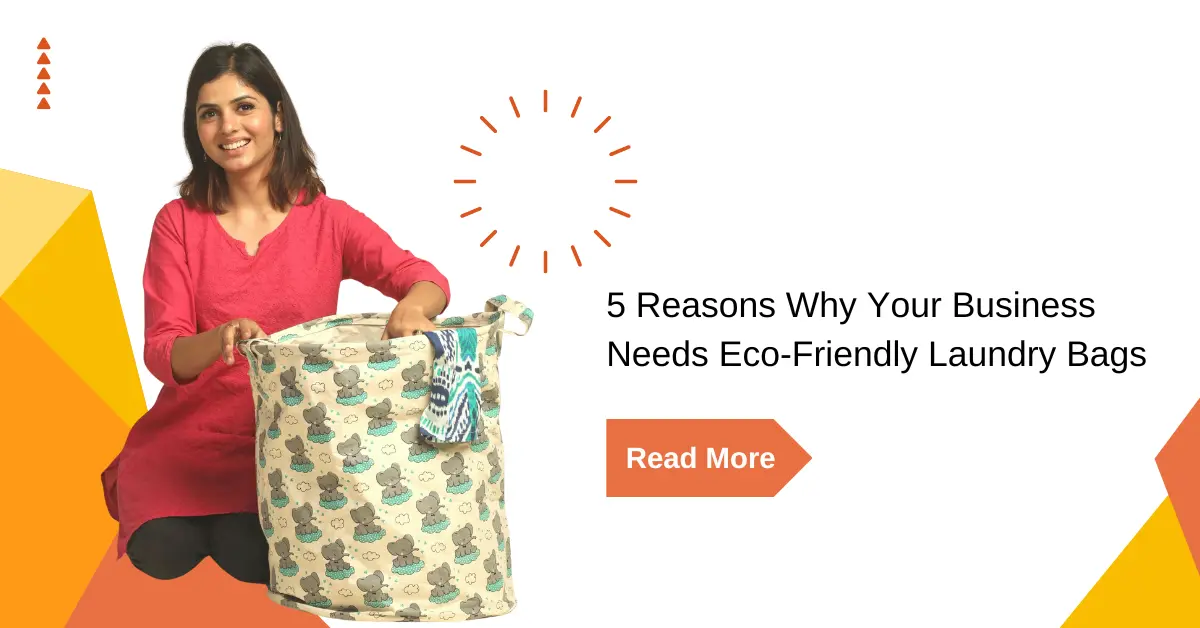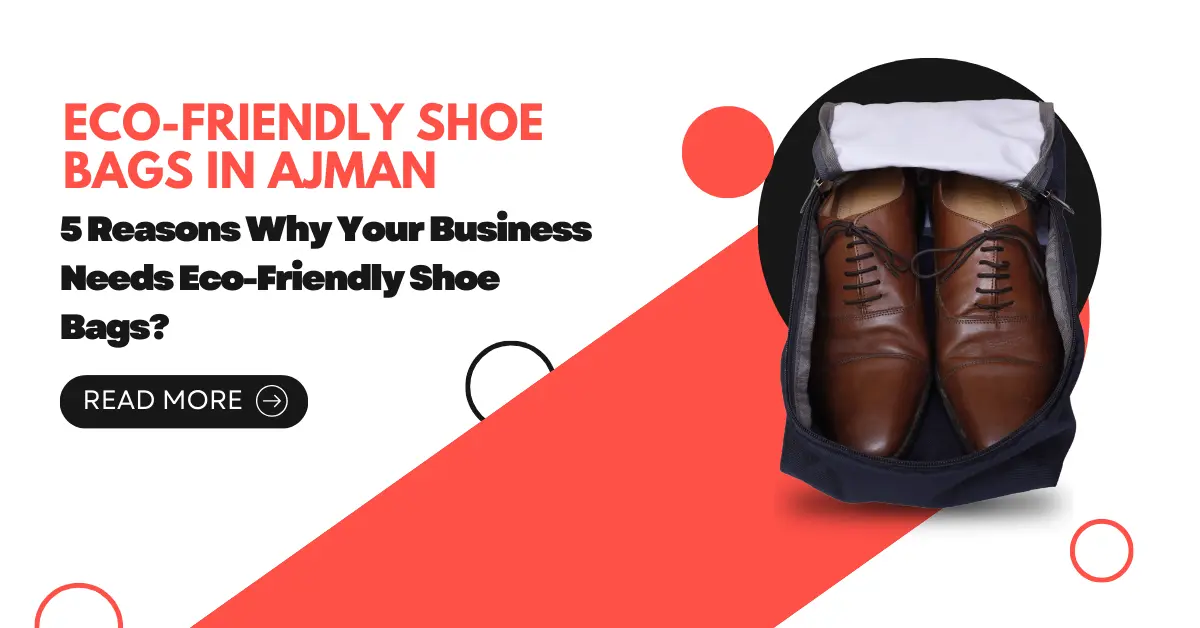In the bustling city of Dubai, where innovation meets sustainability, shopping bags manufacturers are leading the way in providing eco-friendly solutions for consumers and businesses alike. From reusable to non-woven carry bags, these manufacturers are committed to producing high-quality products that not only meet the demands of the market but also contribute to a greener future. In this comprehensive guide, we’ll explore the offerings of shopping bags manufacturers in Dubai and the eco-friendly solutions they provide.

The Rise of Eco-Friendly Shopping Bags Manufacturers In Dubai
As environmental consciousness grows worldwide, the demand for eco-friendly shopping bags has seen a significant rise. Consumers are increasingly opting for reusable and sustainable alternatives to traditional plastic bags, prompting Shopping bags manufacturers in Dubai to innovate and adapt to meet this demand.
Reusable Bags for Sustainable Shopping
Reusable Tote Bags: Shopping bags manufacturers in Dubai offer a wide range of reusable tote bags made from durable materials such as cotton canvas or recycled PET. These bags are designed to withstand multiple uses and are ideal for grocery shopping, errands, or everyday use.
Foldable Shopping Bags: Another popular option is foldable shopping bags, which are compact and convenient to carry. These bags can be easily folded and stored in a purse or pocket, making them perfect for spontaneous shopping trips or travel.
Non-Woven Carry Bags: A Sustainable Choice
- Biodegradability and Compostability:
Non-woven carry bags are typically made from biodegradable materials such as polypropylene (PP), which decomposes naturally over time, unlike traditional plastic bags that can persist in the environment for hundreds of years. Additionally, some non-woven bags are compostable, breaking down into organic matter when disposed of in composting facilities, further reducing their environmental impact. - Reusability and Durability:
Unlike single-use plastic bags, non-woven carry bags are designed for repeated use. They are durable, tear-resistant, and capable of carrying heavy loads, making them suitable for multiple shopping trips and everyday use. By opting for reusable non-woven bags, consumers can significantly reduce their reliance on disposable plastic bags, minimizing waste generation and resource consumption. - Resource Efficiency:
The production of non-woven carry bags requires fewer resources compared to traditional plastic bags. Non-woven bags are typically manufactured using a process that involves melting and bonding polypropylene fibers together, which consumes less energy and water compared to the production of plastic bags. Additionally, non-woven bags can be made from recycled materials, further conserving resources and reducing waste. - Versatility and Customizability:
Non-woven carry bags come in a variety of shapes, sizes, colors, and designs, offering versatility and customizability to meet diverse consumer preferences and branding needs. Whether used for grocery shopping, retail purchases, promotional events, or gift packaging, non-woven bags can be tailored to suit specific purposes while promoting sustainability and brand awareness. - Reduction of Plastic Pollution:
By choosing non-woven carry bags over single-use plastic bags, consumers and businesses contribute to the reduction of plastic pollution in the environment. Non-woven bags are less likely to end up in landfills, waterways, and oceans, where they can harm wildlife, marine ecosystems, and human health. Their biodegradability and recyclability further mitigate the environmental impact of plastic waste.
Eco-Friendly Innovations in Bag Manufacturing:
Sustainable Materials:
Plant-based Materials: Shopping Bags Manufacturers in Dubai are increasingly turning to renewable plant-based materials such as organic cotton, bamboo, hemp, and jute to produce eco-friendly bags. These materials are biodegradable, compostable, and require fewer resources to produce compared to conventional plastics.
Recycled Materials: Recycled materials such as recycled PET (rPET) and recycled nylon are being used to create bags with a lower environmental footprint. By diverting waste from landfills and reducing the need for virgin materials, recycled bags help conserve resources and minimize pollution.
Bio-based Plastics: Bio-based plastics derived from renewable sources such as corn, sugarcane, or algae offer a promising alternative to petroleum-based plastics. These bioplastics are biodegradable or compostable, making them a more sustainable choice for bag manufacturing.
Energy-Efficient Production:
Renewable Energy: Shopping Bags manufacturers in Dubai are increasingly investing in renewable energy sources such as solar, wind, and hydroelectric power to reduce their carbon footprint. By harnessing clean energy sources, manufacturers can lower greenhouse gas emissions associated with bag production and contribute to a more sustainable energy transition.
Energy-Efficient Technologies: Advanced manufacturing technologies and processes, such as energy-efficient machinery, LED lighting, and automated systems, help minimize energy consumption and optimize production efficiency. By improving energy efficiency, manufacturers can lower operating costs and environmental impact.
Water Conservation:
Water Recycling Systems: Shopping Bags manufacturers in Dubai are implementing water recycling and treatment systems to minimize water usage and reduce wastewater discharge. These systems capture and treat wastewater from production processes, allowing manufacturers to reuse water in subsequent production cycles and minimize freshwater consumption.
Waterless Dyeing Techniques: Traditional dyeing processes can be water-intensive and polluting. To address this issue, manufacturers are adopting waterless dyeing techniques such as digital printing, sublimation printing, and laser etching, which require minimal to no water and reduce chemical usage and wastewater generation.
Circular Economy Initiatives:
Closed-Loop Recycling: Shopping Bags manufacturers in Dubai are embracing circular economy principles by designing products with end-of-life considerations in mind. By using recyclable materials and designing bags for disassembly, manufacturers facilitate the recycling and recovery of materials at the end of their life cycle, creating a closed-loop system that minimizes waste and maximizes resource efficiency.
Take-Back Programs: Shopping Bags manufacturers in Dubai offer take-back programs or recycling initiatives to collect and recycle old or worn-out bags. These programs encourage consumers to return their used bags for recycling, preventing them from ending up in landfills or the environment.
Shopping bags manufacturers in Dubai are playing a crucial role in providing eco-friendly solutions for consumers and businesses. From reusable tote bags to non-woven carry bags, these manufacturers offer a wide range of options to meet the diverse needs of the market. By embracing sustainable materials, innovative technologies, and energy-efficient practices, they are contributing to a more sustainable and eco-conscious future in Dubai and beyond.
